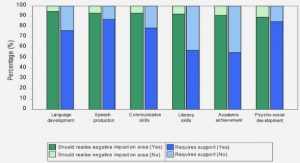Get Complete Project Material File(s) Now! »
Research Methodology
Research methodology is a process of how research are undertaken including a frame-work that embodies some philosophies that reflect the approaches employed, the proce-dures and method based on their validity and reliability and the implication of these me-thods to decision making (Saunders et. al, 2005). Sekaran (2000, pg.4) define research “as an organized, systematic, data based, critical, objective, scientific inquiry or investi-gation into a specific problem, undertaken with the purpose of finding answers or solu-tions to problem”. This is similar to Zikmund (2000) explanation that is based on ana-lytical and objectivity in making rational conclusion. Ghauri and Gronhaug (2005) noted that research methodology is about the systematic and critical analysis of issues before drawing conclusion on them. The systematic analysis is about the fundamentals and procedures required for research and they are important for providing insight through logical sequence, assist others to evaluate, replicate and criticize findings. To this end, research should posses the following characteristics highlighted by Sekaran (2000, pg.21); “purposiveness, rigor, testability, reliability, precision and confidence, objectivity, generalizability and parsimony.”
Research Approach
The approach chosen for this work is inductive since, the author will draw conclusion from a case study of MTN Nig. Ltd. The case of the company represent the empirical observation that support the studies of Zikmund (2000), Ghauri and Gronhaug,( 2005) and Sekaran, (2000). The use of inductive approach helps the author of this thesis to identify and analyze theoretical problems (institutional void) and their effect on MTN as a result of their international expansion to Nigeria. This work emphasizes less on gene-ralization with regards to other firms in the same industry or other countries. Instead, focus is more on creating a broader and deeper understanding of the case study and re-search method in order to provide answers to the research questions and accomplish the stated research objective.
The approach of conducting research represents the building block for investigation which is determined by the purpose of the particular study (Sekaran, 2000; Ghauri and Gronhaug, 2005) in order to generate theories (Zikmund, 2000). The typical approaches identify by (Gill and Johnson, 2002; Sekaran, 2000; Ghauri and Gronhaug, 2005) are inductive and deductive approach. In regards to the chosen method, Sekaram (2000) and Ziklund (2000) provide useful insight for understanding inductive approach. Both au-thors hold that inductive approach is a method where observation leads to rational, or-ganized and acceptable proposition or conclusion. This means that reasoning precede specific observations to a broader conclusions that involves some level of uncertainty. Based on the study of Bryman and Bell (2003), inductive approach is a trend that flows from observation to theory (see Gill and Johnson, 2000; pg.40) which are subsume through knowledge development to update and upgrade future theories (Ghauri and Gronhaug, 2005).
Research Method/Data Collection
Research method can also be referred to as a research design and it represents “a master plan specifying the methods and procedures for collecting and analyzing needed infor-mation” (Zikmund, 2000. pg. 59). It is a method that is aimed at systematically and or-derly collection of data for the purpose of gathering information to solve some specific research problem or answer research questions that is under investigation (Ghauri and Gronhaug, 2005). Therefore, the author of this thesis has chosen qualitative method be-cause of its focus on specific and unique cases (Elsbach and Bechky, 2009) as represented by the study of ICE and how it is affected by institutional void. Thus, cor-respond to the work of Gummesson (2000) which state that qualitative method makes clear the borderline between academic research and inquiry into firm‟s behavior. By us-ing interview questionnaire to collect data from the company, qualitative method be-comes the favorable option since qualitative research in most cases involves the analysis of non statistical data such as numerical figures. Though, interview questionnaire can also be used for collecting statistical and numerical data. This does not mean that qualit-ative data cannot be quantified statistically but often, qualitative method involves data collection through observations and interviews (Ghaauri and Gronhaug, 2005). Zik-mund (2000) work is in-line with both authors by emphasizing that the focus of qualita-tive research was on words, observation, stories, visual portrayals, meaningful characte-rizations, interpretations, and other expressive description. The advantage of qualitative method is that studies are usually investigated in-depth through unstructured nature with a limited scope such as focusing on a particular case (Davis, 2000). See also (Sekaran, 2000. pg.376).
Ethical Consideration in Data Collection
Ethical importance to research centers on the principles and procedures that guide the practices of data collection by protecting the rights and obligation of the researcher and the respondents (Ziklund, 2000), these rights include the voluntary participation, pre-information and consent, confidentiality, privacy and the risk of physical, psychologi-cal, social, economic or legal harm (Creswell, 2009; Patton,2002; Ziklund, 2000 and Sa-rantakos, 2005). Sarantakos (2005) stress the importance of consent and protection dur-ing data collection and summarized what every consent form must include; the identifi-cation of the researcher, identification of the sponsoring institution, indication of how the participants were selected, identification of the purpose of the research, identifica-tion of the benefits for participating, provisions of names of persons to contact if ques-tions arise, assurance that the participant can withdraw at any time, identification of the level and type of participating involvement, guarantee of confidentiality to the par-ticipant and notation of risks to the participant.
For the purpose of the thesis, the author will adhere to the required guidelines for carry-ing out research by treating the respondent‟s information with respect which is in accor-dance with (Sarantakos, 2005). The respondent is assured that this research is strictly for academic purpose and for the requirement in fulfillment of master‟s program in busi-ness administration at Jonkopings International Business School (JIBS).
1 1 INTRODUCTION
1.1 Background Study
1.2 Problem Statement
1.3 Purpose of Study and Research Question
1.4 Organization
2 THEORITICAL FRAMEWORK
2.1 International Corporate Entrepreneurship and Institutional Environment
2.2 Political Institutional Environment Facing Corporate Entrepreneurship
2.3 Economic Institutional Environment Facing International Corporate Entrepreneurship
2.4 Cultural Environment Facing International CE
2.5 Infrastructure
2.6 How Institutional Void Affect ICE
2.7 Strategic Responds to Institutional Void
2.8 Summary of Theoretical Frame of Reference
3 Research Methodology
3.1 Research Approach
3.2 Research Method/Data Collection
3.3 Ethical Consideration in Data Collection
3.4 Case Study
3.5 Interview
3.6 Presentation and Analysis of Empirical Case
3.7 Research Material
4 Result
4.1 Country Profile
4.2 Background of Case Study: MTN Nigeria
4.3 Institutional void and firm learning and adaptability during international operations
5 Discussion
5.1 Institutional factors and MTN Operations in Nigeria
5.2 Institutional Void, Firm’s Learning and Adaptability in Nigeria
5.3 Corporate Capability Changes
6 Conclusion and Recommendation
GET THE COMPLETE PROJECT
International Corporate Entrepreneurship: Effect of In-stitutional Void on Firm’s Operations






